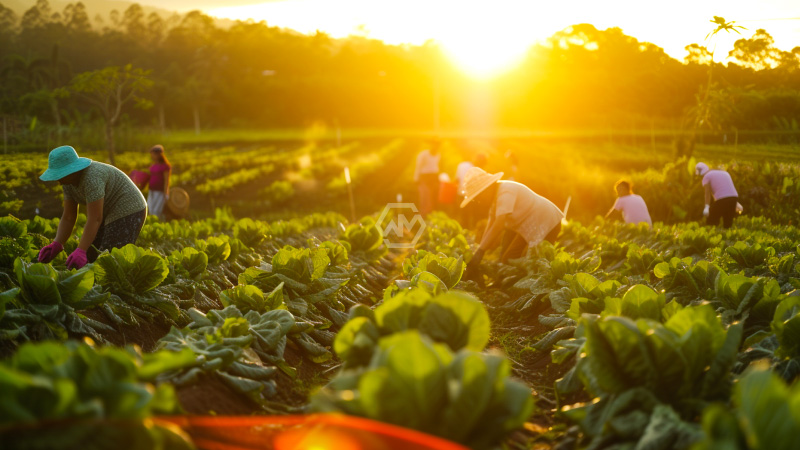- Abelis fled her native country because of social and economic problems and ended herself in Argentina.
- The startup maximizes available space in urban environments by growing microgreens indoors.
- The number of migrants and refugees entering Argentina by June 2023 was above 230,000.
Abelis, a 29-year-old agricultural engineer from Venezuela, fled her native country because of social and economic problems and ended herself in Argentina. She got to know Mauro at Loopfarms, a cutting-edge business that supports environmentally friendly food production.
The startup maximizes available space in urban environments by growing microgreens indoors using state-of-the-art technologies including hydroponics and biogas. The company makes biofertilizer by gathering organic waste from surrounding eateries, which is then fed to the sprouts.
Urban agriculture
By utilizing as little water, land, and transportation as possible to grow food that is packaged in returnable containers to reduce plastic waste, Loopfarms is dedicated to reducing the impact of climate change.
By implementing sustainable practices and starting campaigns to save regional ecosystems and increase resilience, Abelis’s work at Loopfarms assists her people in adjusting to the challenges presented by the climate catastrophe. In the midst of a crisis that is touching everyone on the planet, but especially the weaker members of society who reside in areas plagued by violence and natural disasters, her participation is essential.
Mauro and Abelis first connected at a “Cities of Solidarity” gathering in 2022. This program, run by the UN Refugee Agency, UNHCR, brings together several American cities to collaborate on the inclusion and protection of migrants and refugees.
The event gave different businesses the chance to network with refugees whose professional backgrounds were relevant to their operations. The number of migrants and refugees entering Argentina by June 2023 was above 230,000.
Loopfarms is promoting inclusiveness and diversity in the workplace by giving Abelis and other displaced individuals jobs and chances. Abelis and Mauro have gotten along well, exchanging culinary customs and talking about their heritage.
Following work, Abelis takes dancing classes in Venezuela, which helps her reconnect with her family and her heritage. Abelis hopes to stay at Loopfarms, continue learning, and develop here because working here has given her hope while she is away from home. In due course, she aspires to become a citizen and declare, “I am Argentinian.”



